Urban farmers Sarah McCamman and Randy Stannard never dreamed their most lucrative time of year — heirloom tomato season — would go from boom to bust under a state quarantine.
But then the California Department of Food and Agriculture discovered 15 Oriental fruit flies in the Lemon Hill community of Sacramento, about two miles away from McCamman and Stannard’s Root 64 farm. This invasive species, normally found in southern Asia, attacks more than 230 types of crops when females lay eggs under the skin of fruits and vegetables. The state quickly imposed a 123-square-mile quarantine, which prevents Root 64 in the Tallac Village neighborhood from selling its current batch of produce off of the farm.
Farmer Randy Stannard (left) helps customer Catherine Dunwoody
pick out tomatoes. Photos by Joan Cusick
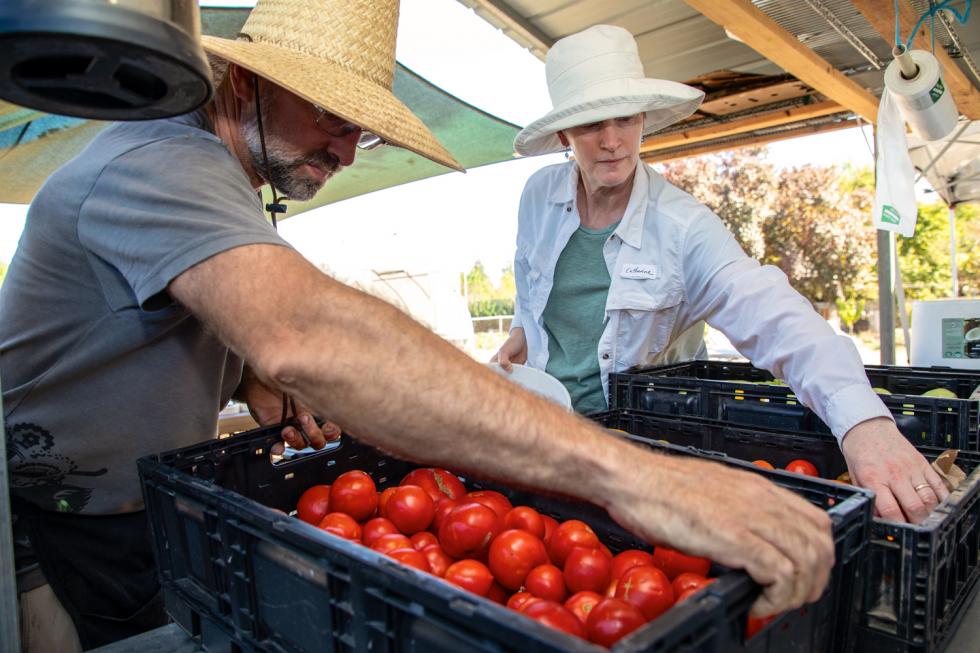
Food blogger Pam Farley and her daughter, Erin, prepare three
packages of zucchini for freezing.
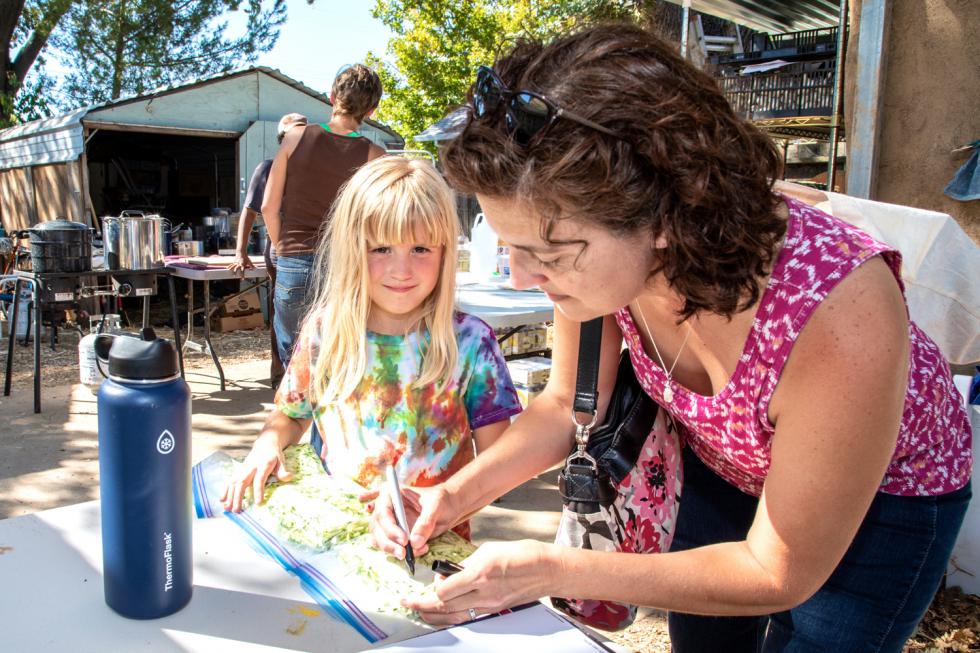
The quarantine extends until May 2019 and covers all produce grown on about 100 commercial farms and thousands of residential backyards in the defined geographic area. According to CDFA, farmers and homeowners cannot “move fresh produce off the property.” If farmers want to resume selling their produce, they must complete a four-week application of insecticide, under CDFA supervision, to eradicate the pests, and then continue weekly treatment as long as the quarantine is in effect.
“This quarantine has a massive impact on our business,” says McCamman, who expects to lose about 15-20 percent of total annual revenue during the four weeks she is unable to sell her produce. “This is the most lucrative time of the year, when we have to make enough money to make it through the winter, and tomatoes are by far our most lucrative crop.”
Sara Smith-Rubio pours chopped tomatoes into a large pot for
cooking.
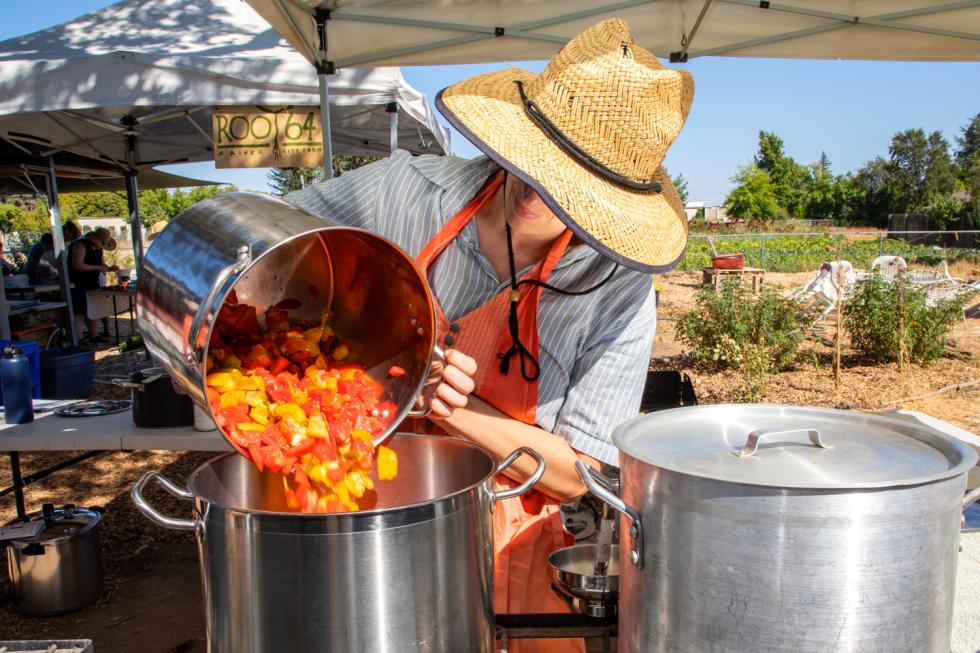
When McCamman and Stannard first learned of the quarantine on Aug. 29, “I started joking about having an eating party,” she says. “I just pictured people here stuffing their faces with big, beautiful, ripe heirloom tomatoes.”
The idea quickly became a preservation party, based on CDFA advice that “fruits and vegetables may be consumed or processed (i.e. juiced, frozen, cooked, or ground in the garbage disposal) at the property of origin.”
The Root 64 urban farm in Sacramento.
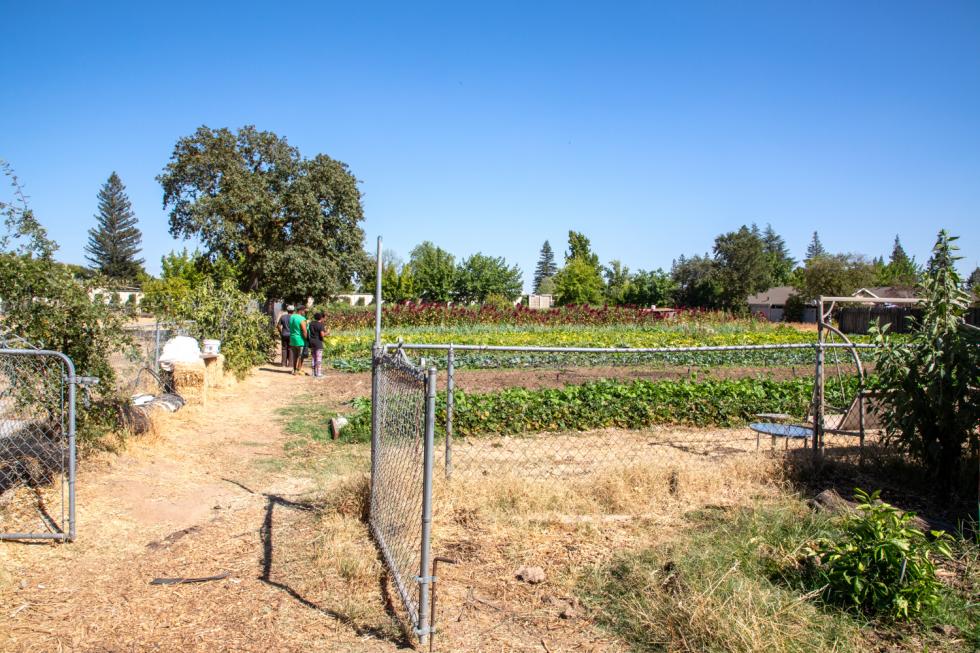
When about 50 customers arrive on a recent Sunday afternoon, the Root 64 backyard is set up with various stations to preserve tomatoes, cucumbers, squash and other fresh-off-the-farm produce. After checking in at the packing shed, patrons purchase their produce, and begin chopping tomatoes and turning cucumbers into spears for dill pickles.
Amber Stott, founder of the Food Literacy Center, supervises the brining of pickles. Sara Smith-Rubio, who like McCamman and Stannard formerly worked at Soil Born Farms, is cooking huge vats of tomatoes for canning.
Katie and Paul Towers wash cucumbers before chopping them for
pickles.
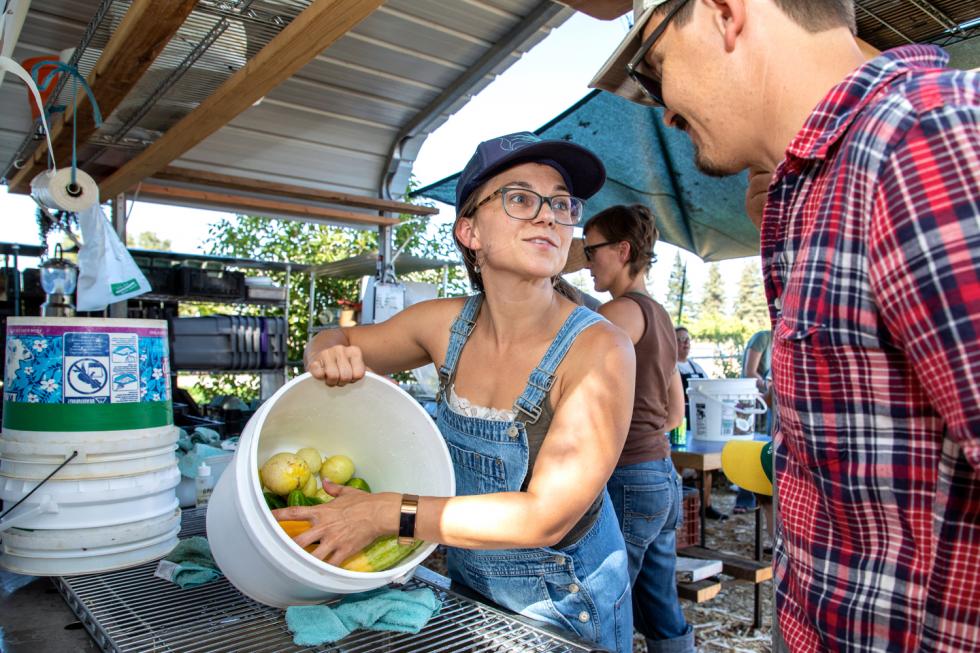
Hatch Towers, son of Paul and Katie Towers, cuts his own pickle
spears and places them in jars.

Neighbors like Penny Neff are spiraling zucchini into “zoodles.” Food blogger Pam Farley is processing three packages of squash before returning home to celebrate her husband’s birthday. Fellow farmer LaTisha Sohai is just one of many customers who bring the entire family for a fun, educational afternoon.
“My family turned out to support farmers because they are part of the fabric of our community and we’re their safety net,” says Paul Towers, organizing director and policy advocate for Pesticide Action Network North America. “Farmers like Sarah and Randy are operating on razor-thin margins, and a pest problem can put them out of business, so we need to be there to make sure that doesn’t happen. And of course we get to eat delicious pickles and tomatoes, too.”
Joany Titherington runs the Oak Park Farmers Market on Saturdays and the Wednesday market at UC Davis for NeighborWorks Sacramento. She arrives at Root 64 to make tomato sauce, pickle and relish — items she normally cans at home. She sees the impact on farmers markets that also fall within the quarantine zone. At these markets, vendors are required to cover certain produce with plastic to protect it from Oriental fruit flies that might have migrated to the market area.
The Root 64 packing station is turned into a chopping zone for
cucumbers and tomatoes.
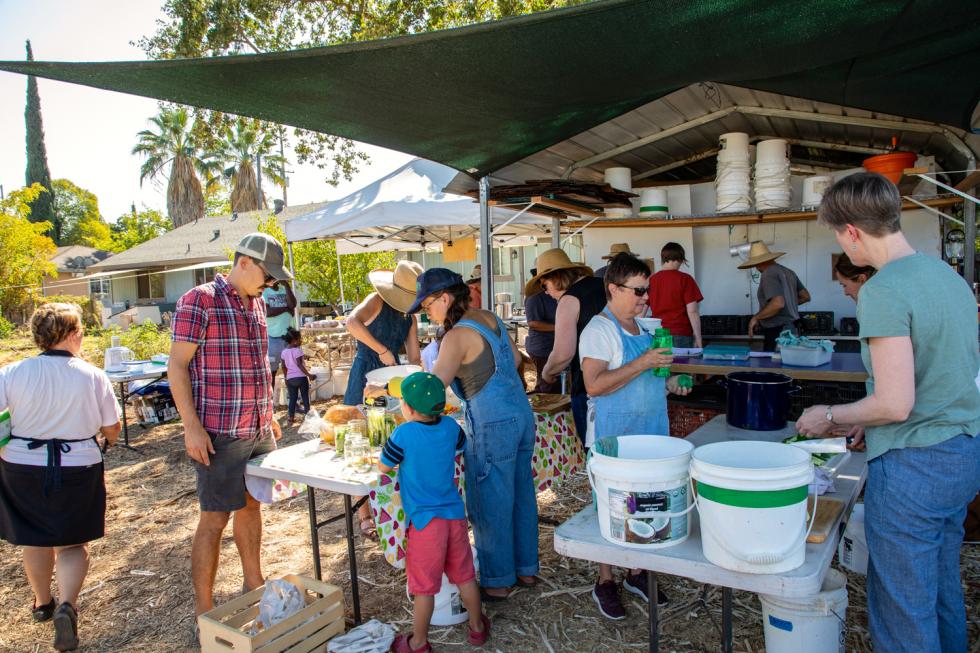
Sarah McCamman chats with customers at Root 64.
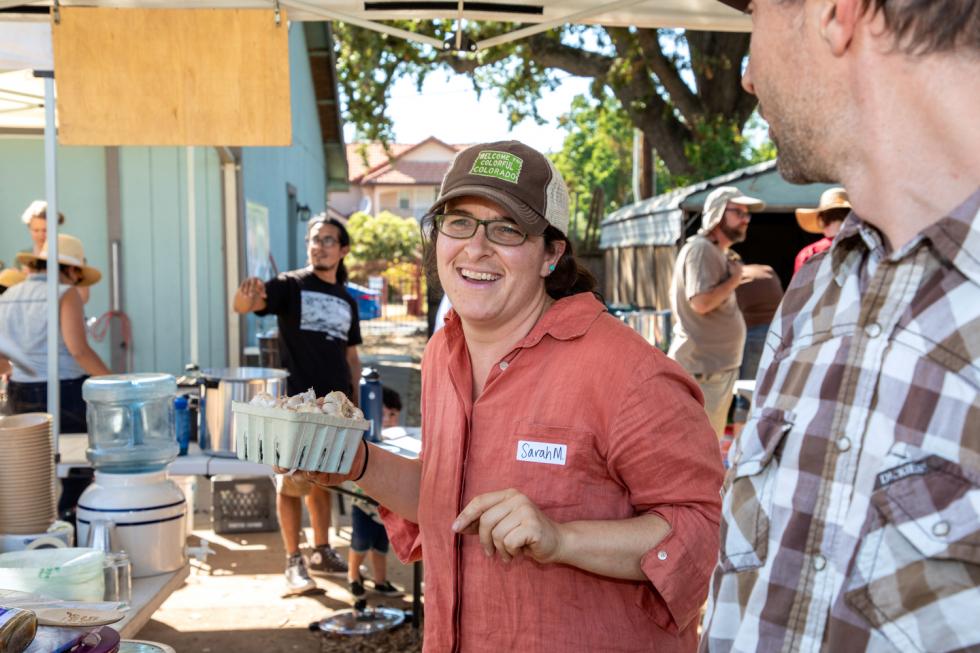
“It’s only been a slight inconvenience for shoppers,” Titherington says. “The impact was mostly just answering questions to let folks know what it was, why is the plastic all over the produce, why are inspectors here. I think the education was helpful.”
Although McCamman and Stannard expect to return to the Oak Park Farmers Market on Sept. 22, the CDFA quarantine will remain in effect for up to nine months. That means the farmers will have to continue to spray an insecticide every 7 to 10 days, under CDFA supervision, until their market sales end in October.
In addition to abatement on small farms like Root 64, CDFA is working with homeowners who may have fruits and vegetables growing in their backyard.
“Residential fruit trees are always a big part of any project we work on since the backyard tree can be a potential pathway for spread of the pests,” says Steve Lyle, CDFA director of public affairs. “We are asking residential growers of fruits and vegetables that are host plants not to move those fruits and vegetables off their property. They can be consumed on the property. Also, if you throw away any produce, you are asked to double-bag it and put it in the regular trash.”
Amber Stott ladles brine into pickle jars prepared by Catherine
Dunwoody.
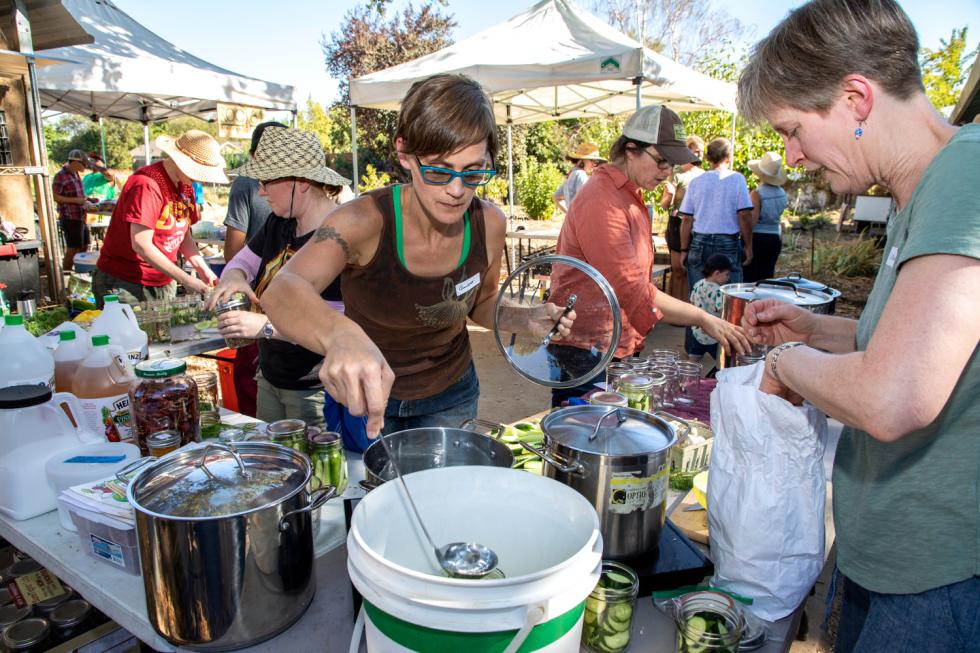



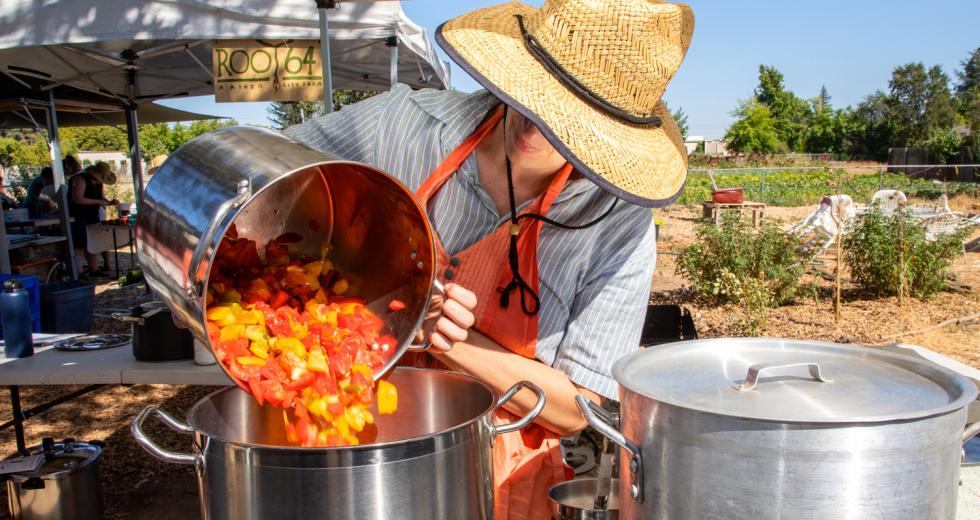
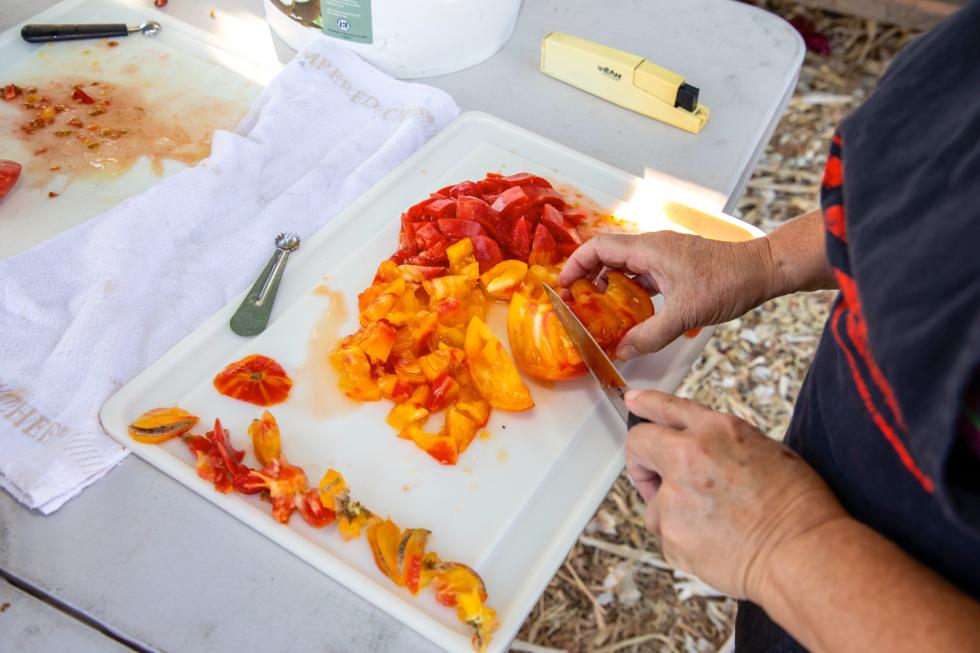
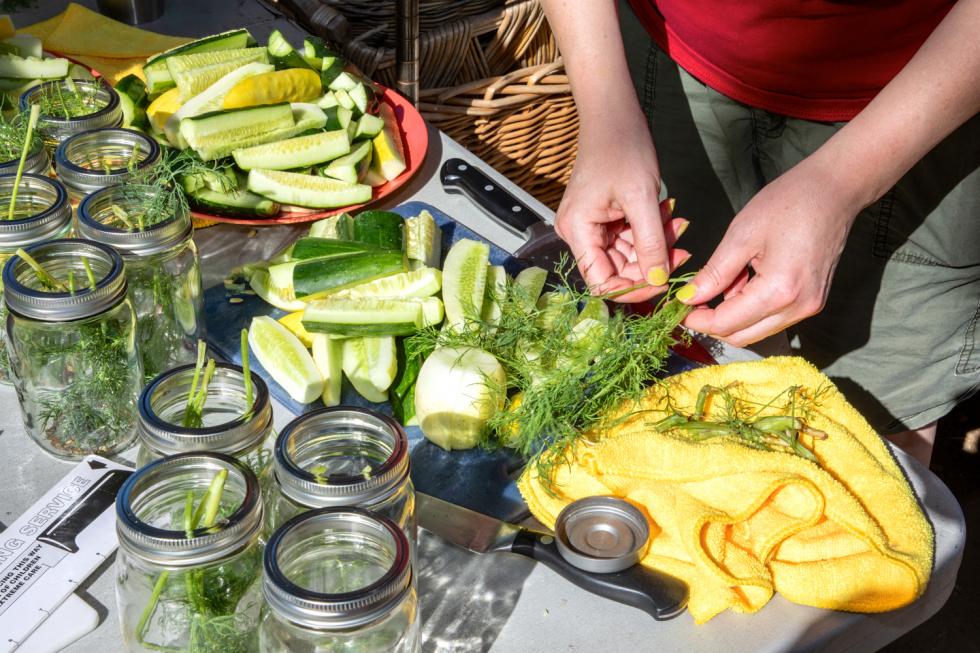
Comments
We were so happy to help our friends Randy and Sarah deal with this unfortunate quarantine. It was a pleasure to meet so many kind and helpful people!